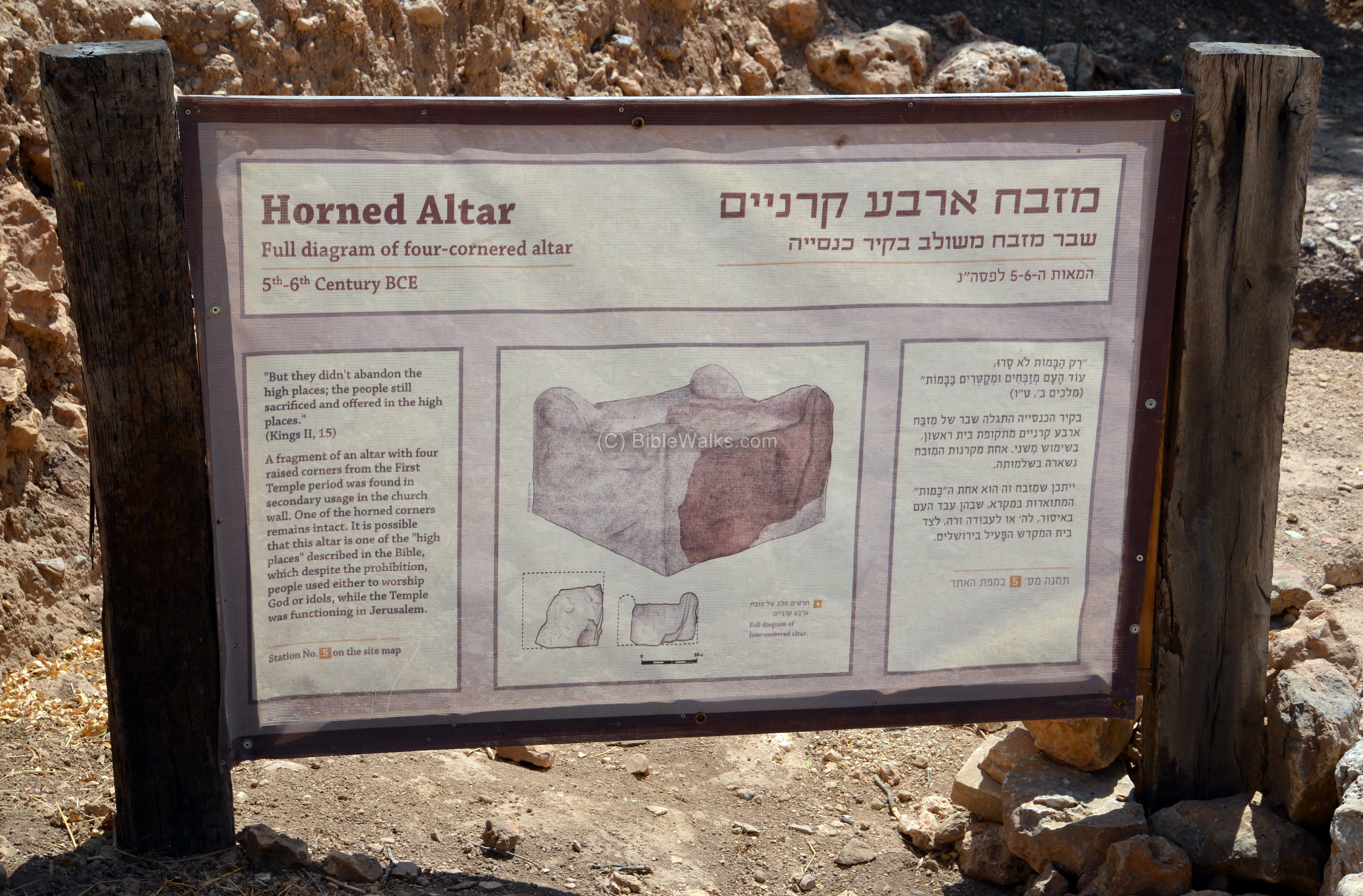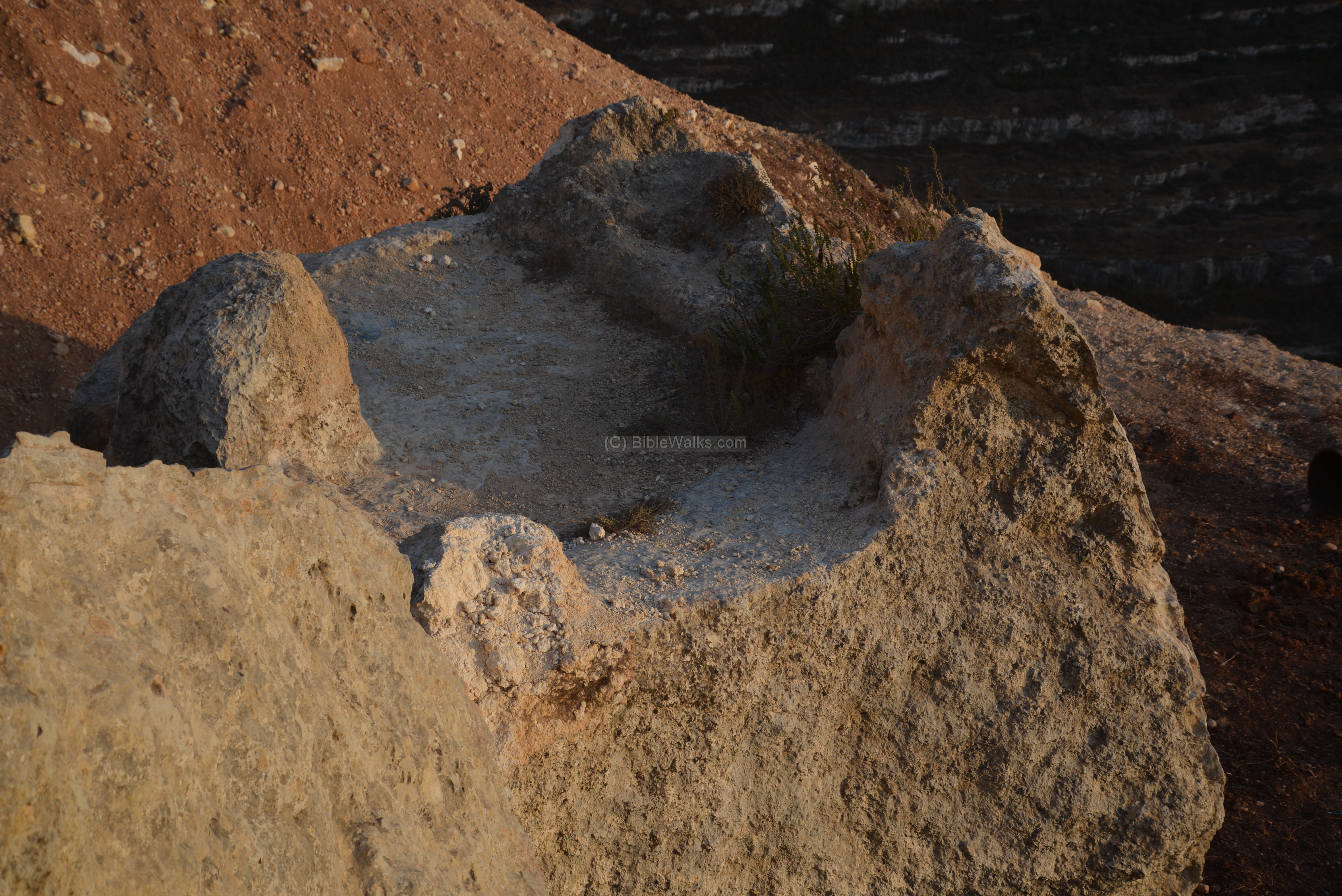An altar is a table of stones, but is also a way of saying: here is a meeting place between G!d and the world.
| מִזְבֵּחַ | mizbeach | altar |

Altar 1: Moreh / "Instruction"
(6) Abram passed through the land as far as the site of Shechem, at the terebinth of Moreh. The Canaanites were then in the land. (7) ה' appeared to Abram and said, “I will assign this land to your offspring.” And he built an altar there to ה' who had appeared to him.
Altar 2a: Between Bethel & Ai - To make a space to invoke G!d
(ח) וַיַּעְתֵּ֨ק מִשָּׁ֜ם הָהָ֗רָה מִקֶּ֛דֶם לְבֵֽית־אֵ֖ל וַיֵּ֣ט אׇהֳלֹ֑ה בֵּֽית־אֵ֤ל מִיָּם֙ וְהָעַ֣י מִקֶּ֔דֶם וַיִּֽבֶן־שָׁ֤ם מִזְבֵּ֙חַ֙ לַֽה' וַיִּקְרָ֖א בְּשֵׁ֥ם ה'׃
After the episode of traveling to Egypt to escape the famine, we witness Abram returning to the area between Bethel and Ai. He revisits the same altar and invokes G!d. I like to think of it as Abram making a quick update to G!d at the rest stop payphone.
Altar 2b: Between Bethel & Ai (same location at 2a)
(ג) וַיֵּ֙לֶךְ֙ לְמַסָּעָ֔יו מִנֶּ֖גֶב וְעַד־בֵּֽית־אֵ֑ל עַד־הַמָּק֗וֹם אֲשֶׁר־הָ֨יָה שָׁ֤ם אׇֽהֳלֹה֙ בַּתְּחִלָּ֔ה בֵּ֥ין בֵּֽית־אֵ֖ל וּבֵ֥ין הָעָֽי׃ (ד) אֶל־מְקוֹם֙ הַמִּזְבֵּ֔חַ אֲשֶׁר־עָ֥שָׂה שָׁ֖ם בָּרִאשֹׁנָ֑ה וַיִּקְרָ֥א שָׁ֛ם אַבְרָ֖ם בְּשֵׁ֥ם ה'׃
(3) And he proceeded by stages from the Negeb as far as Bethel, to the place where his tent had been formerly, between Bethel and Ai, (4) the site of the altar that he had built there at first; and there Abram invoked ה' by name.
In this passage, the text uses the words “וַיֶּאֱהַל/va’ye’ehal” and “וַיֵּשֶׁב/vayeishev” to describe Abram settling his encampment and dwelling more permanently in Hebron.
Altar 3: Hevron
The next place the book of Genesis mentions a mizbeach is the sacrifice of Isaac:

Four horned alter (hewn stone)
source: https://www.biblicalarchaeology.org/wp-content/uploads/bamah-beersheba.jpg





